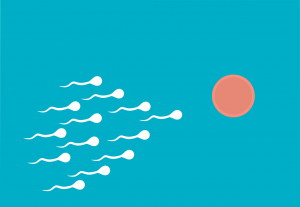Have you been wanting to start or grow a family but it’s not happening and you need some help? Are you planning to see a fertility specialist to learn more about your options? Or maybe you’ve already seen one and you are feeling overwhelmed after your consultation?
 In this blog, we explain the most common procedures that might be offered at your fertility clinic. It can be very overwhelming so our goal is to give you a better understanding of what your options are.
In this blog, we explain the most common procedures that might be offered at your fertility clinic. It can be very overwhelming so our goal is to give you a better understanding of what your options are.
When you have the first consultation with a specialist, they will ask you both to get some blood tests and a semen analysis. Sometimes if you have done all the test recently with a GP, you may not need to redo all the tests.
Let’s start with having a look at the most common terminology:
ART – Assisted Reproductive Technology
This is the umbrella term for all fertility treatment of which the most common one is IVF.
Ovulation induction
Instead of going straight into IVF, some doctors recommend doing ovulation induction. It is much less invasive compared to IVF as there will be no surgery involved.
During the first week of your cycle, you will be given a medication such as Clomid or Letrozole for a week to promote the growth of your follicles. You will be monitored by blood tests and/or ultrasound to check the size and number of follicles. You will then be advised when will be a good time to have intercourse. Sometimes, you will be given an injection to help the release of the egg.
IUI – Intrauterine insemination
In this procedure, sperm is collected and being washed to obtain the best sperm. The sample will then be inseminate directly into the uterine cavity around your ovulation time. This can be done in a natural cycle (no medication involved) or a medicated cycle (ovulation induction medication/injection). IUI is suitable for couples diagnosed with unexplained fertility, mild male factor infertility, couples that have not fallen pregnant with ovulation induction, or when you are using frozen sperm or donor sperm.
IVF – In Vitro Fertilisation
 This is the procedure that involves collecting the egg and sperm and then putting them together in a lab. During your consultation, doctors and nurses will explain in full detail what medication you will need and when to take them. It involves daily injection into your lower abdomen. You will be closely monitored with blood test and ultrasound to determine when the follicles are at the right size and then you will be taking a so called trigger injection. This triggers the release of the eggs, 36-40 hours after the shot.
This is the procedure that involves collecting the egg and sperm and then putting them together in a lab. During your consultation, doctors and nurses will explain in full detail what medication you will need and when to take them. It involves daily injection into your lower abdomen. You will be closely monitored with blood test and ultrasound to determine when the follicles are at the right size and then you will be taking a so called trigger injection. This triggers the release of the eggs, 36-40 hours after the shot.
You and your partner will then need to go into the clinic together for egg and sperm collection. The eggs and sperm will be put into a dish together for fertilization. The embryo is left to grow for 5 days and after this it will be transferred into your uterus. Sometimes this is done on day 3.
The rest of the embryos will be frozen for future use.
After 10-14 days, you will do a blood test to see if you are pregnant. It is recommended not to use home pregnancy test as the medication used during the cycle can give a false positive reading.
There is also a long cycle version of IVF treatment where you will start medication from one week after ovulation until your period comes then continue with daily injections before egg collection as above. This treatment can take 4-6 weeks.
ICSI – Intracytoplasmic Sperm Injection
This is an additional part to an IVF treatment. Instead of putting the egg and sperm together in a dish to let them fertilise naturally, a sperm is manually injected into each egg. ICSI is recommended for severe male infertility or if the male partner has previously gone through a vasectomy with an unsuccessful reversal.
PGT – Preimplantation Genetic Testing
With PGT the embryo’s get tested genetically before they get transferred. The testing can take a few weeks so you will need to wait for the next cycle for your transfer. The test is helpful to find chromosomal issues with the embryo so that only the healthy embryos will be used for transfer. PGT is recommended for women who have had several miscarriages or when either of the partners has known chromosomal issues.
Is IVF covered by Medicare?
Medicare benefit can be applied when the couple is diagnosed as being “medically infertile”. It covers most IVF treatment expenses except day surgery service such as egg collection. As every clinic has different charges, please discuss their fees up front so that you know how much you need to pay out of pocket. There are also fertility clinics that provide bulk billed services which is great if you have tight budget.
Some private health insurance will provide rebate for certain expenses. It’s best to contact your health fund to find out.
The government is currently giving $500 rebate for pre-IVF fertility testing. Please talk to your specialist to see if you are eligible.
 Should I be doing acupuncture when going through fertility treatment?
Should I be doing acupuncture when going through fertility treatment?
IVF treatment can be very overwhelming and most women feel quite anxious during the process. Acupuncture is a great way of supporting yourself through this difficult time, you will feel a lot more relaxed. With acupuncture we will support the IVF process and are aiming to increase the blood flow to the uterus and ovaries. Women are often commenting that having their regular acupuncture sessions is keeping them sane during an anxiety provoking time.
Where do I go to get fertility acupuncture?
Here at Natural Solutions Acupuncture all our practitioners are very experienced in fertility acupuncture and we would be more than happy to look after you. If you’d like to come and meet us to see if we’re the right fit to accompany you on your fertility journey, you can book your first fertility acupuncture session here.

